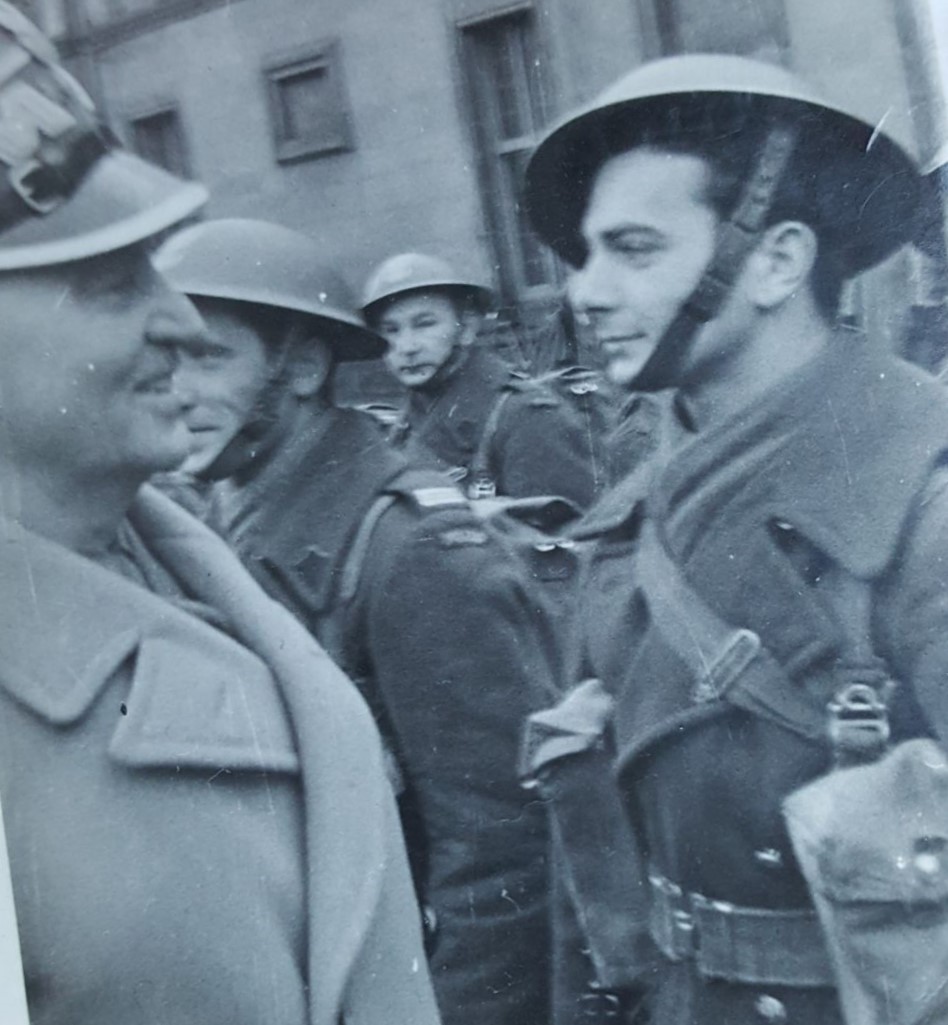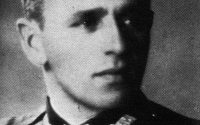Active Service 1940-1945
In 2012, I requested my father’s war record from his arrival in Britain in 1940. Usually he would only recount anecdotal stories of his war service. He had said he was in the 1st Polish Armoured Division under General Stanisław Maczek, had done some Commando training in Scotland and had seen action after D-Day and was wounded somewhere in Belgium and that was about it. In later years I wondered if the period from 1939-1945 he tried to blot out as far as possible.
On 13th April 1940, he enlisted with the Polish forces, commanded by General Duch then under French overall command. After France fell, the Polish forces were evacuated to the United Kingdom and finally arrived in Liverpool on 30th June 1940. Assuming the term ‘1st Polish Armoured Division’ referred to all the Polish Forces, the record states rifle battalions and machine gun squadrons etc and indeed the commando training he had mentioned, so he would have been fully prepared for action once it came for him in August 1944. In France , he played his part in the battles at Caen, Falaise Gap and Abbeville, battles which paved the way for the Allied advance towards Germany. Into Belgium and Ypres, Roulers, Thielt, Ghent, St. Nicholas and Stekene then crossing into Netherlands at Koewacht and Axel-Hulst. From what I understand the unit retreated back into Belgium to Merxplas and Baarle-Heide, the latter where he was wounded in action. Reassigned to his unit after one months recovery, they advance back into Netherlands to Baarle-Nassau, Glize, Breda and Moerdijk not far from the German border before seeing more action on the River Maas which began the advance into and invasion of Germany. In the final stages of the war, in Germany itself, at Kursten Canal, Aschendorf, Papenburg, Ihrlove and Leer. My father said that by this time the German soldiers were happily giving themselves up, just wanting to go home. It’s true, the mighty wage war but the ordinary soldier does the dying.
That is a brief summary of my father’s war service for which he was entitled to six medals in total, two Polish and four British. He was never able to receive the first two because of the political situation in Poland after 1945. The Polish soldiers who elected not to return were forgotten but at least the escaped the fate of those who did return who were treated with suspicion by the authorities in Poland, some imprisoned or sentenced to hard labour, some even executed after mock trials. More of this in the next blog.
Reading through the war record, it’s always of interest to find information about his personal life away from the military; information previously never mentioned. At the outbreak of war my father had still been attending high school – The Fourth High School, ‘Romuald Traugutt’ (named after a famous Polish patriot in previous campaigns for independence) https://en.wikipedia.org/wiki/Romuald_Traugutt. The war record states that after arriving in the UK, he then attended high school in Glasgow, presumably to finish studies.
My father’s home address in Brześć-nad-Bugiem was ulica (street) Unji Lubelskiej 39. the city is now Brest-Litovsk in Belarus and the street name has probably been changed or the street itself no longer exists.
Until reading the record, I had absolutely no idea that he had learned to play violin, mandolin and saxophone! But it should come as no surprise really, as his mother was an accomplished musician.
A few photographs of my father from his years in the army remain and my favourite is one taken as he formed a guard of honour for General Władysław Sikorski, in St. Andrews in 1940.

https://en.wikipedia.org/wiki/W%C5%82adys%C5%82aw_Sikorski.
The General, in addition to being head of the Polish Forces in exile was also Prime Minister of the Polish Government in exile in London.
In 2017, I would be introduced, at the Sikorski Polish Club in Glasgow to Robert Ostrycharz, who is a walking encyclopoedia of information on the Polish Forces in Britain. More in a later blog.
End


